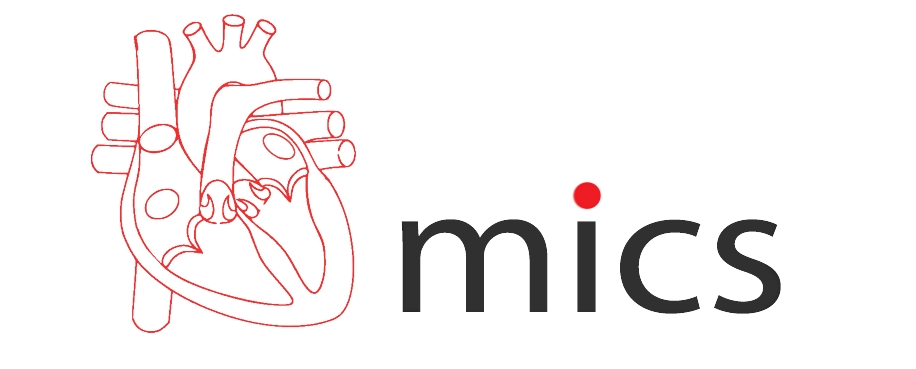Heart valve diseases can significantly affect your quality of life, and in some cases, replacing a damaged heart valve with an artificial one becomes a life-saving procedure. Understanding the different types of artificial heart valves and knowing how to choose the right one can help you or a loved one make informed decisions. This blog is designed to educate patients, medical students, and aspiring doctors about heart valve surgery and artificial heart valves.
Understanding Artificial Heart Valves and Heart Valve Surgery
Heart valve replacement surgery is necessary when one or more of your heart valves aren’t functioning properly. It’s essential to replace the faulty valve with an artificial one to ensure that your heart can continue pumping blood efficiently. Artificial heart valves come in different forms, each with specific advantages and considerations. By the end of this blog, you’ll have a clear understanding of the types of artificial heart valves available, the surgical procedures involved, and how to choose the most suitable option for your health or your patients.
What Are Artificial Heart Valves?
Artificial heart valves are prosthetic devices designed to replace damaged natural heart valves. They mimic the function of a natural valve by regulating the flow of blood through the heart’s chambers. Artificial heart valves are crucial for patients suffering from heart valve diseases like stenosis (narrowing of the valve) or regurgitation (leaking of blood back into the heart).
There are primarily two types of artificial heart valves used in replacement surgeries: mechanical valves and bioprosthetic (tissue) valves. Additionally, Transcatheter Heart Valves (TAVR) are an option for some patients, offering a less invasive solution. Each of these valve types has its pros and cons, which we’ll explore in the following sections.
Types of Artificial Heart Valves
- Mechanical Heart Valves
Mechanical heart valves are made from durable materials like titanium or carbon. These valves are built to last a lifetime and are ideal for younger patients due to their durability. However, there is a higher risk of blood clot formation around these valves, which means that patients will need to take anticoagulant (blood-thinning) medications for the rest of their lives to prevent complications.
- Bioprosthetic (Tissue) Valves
Bioprosthetic valves are made from animal tissue, typically from cows (bovine) or pigs (porcine). These valves tend to have a lifespan of 10-20 years, after which they may need to be replaced. One major advantage is that they don’t require lifelong anticoagulant therapy, making them more suitable for older patients or those who are unable to tolerate blood thinners.
- Transcatheter Heart Valves (TAVR Valves)
For patients who are too high-risk for open-heart surgery, Transcatheter Aortic Valve Replacement (TAVR) offers a minimally invasive option. This procedure involves inserting a new valve via a catheter without the need for major surgery. Initially, TAVR was only for patients who were too frail for surgery, but it is increasingly being used in lower-risk patients as well.
Heart Valve Replacement Surgery: What to Expect
Whether you’re undergoing a traditional open-heart valve replacement or a minimally invasive TAVR procedure, the surgery involves replacing the faulty valve with a new artificial one. Here’s what to expect:
- Pre-Surgery Preparations: Your doctor will run diagnostic tests, such as an echocardiogram or cardiac catheterization, to assess the severity of valve damage.
- Surgical Procedure: In traditional surgery, the surgeon opens the chest to replace the valve. In TAVR, the valve is inserted through a catheter in the groin or chest.
- Post-Surgery Recovery: After valve replacement, most patients spend a few days in the hospital. Full recovery can take several weeks to months, depending on the type of surgery.
Choosing the Right Artificial Heart Valve: Factors to Consider
Selecting the right valve for heart valve replacement is crucial and involves several factors. Your doctor will guide you based on your specific health needs, but it’s essential to understand the key considerations:
- Age and Life Expectancy: Younger patients tend to benefit from mechanical valves due to their durability, while older patients often prefer tissue valves to avoid anticoagulant therapy.
- Lifestyle: Patients who lead active lives may prefer tissue valves to avoid the complications associated with blood thinners.
- Health Conditions: If you have other health conditions, like bleeding disorders, a tissue valve might be a better option. If you’re high-risk for surgery, TAVR could be recommended.
Risks and Complications of Heart Valve Surgery
As with any major surgery, heart valve replacement carries some risks, including:
- Post-surgical infections can occur but are typically managed with antibiotics.
- For mechanical valve patients, there’s a risk of bleeding due to anticoagulation therapy.
- Though rare, artificial valves can fail or become infected, requiring further intervention.
Advances in Artificial Heart Valve Technology
The field of artificial heart valves is continually evolving. Innovations like bioengineered valves and enhanced TAVR technologies are making valve replacement surgeries safer, more accessible, and longer-lasting. Ongoing research aims to create valves that are compatible with a broader range of patients, offering even better outcomes with fewer risks.
Conclusion
Choosing the right artificial heart valve is a critical decision that should be made in consultation with your doctor. Each valve type has its own benefits and risks, and your unique health profile will help determine the best choice for you. Whether you’re a patient needing heart valve surgery or a medical professional looking to expand your knowledge, understanding the different types of valves and the decision-making process is key to improving heart health and outcomes.

